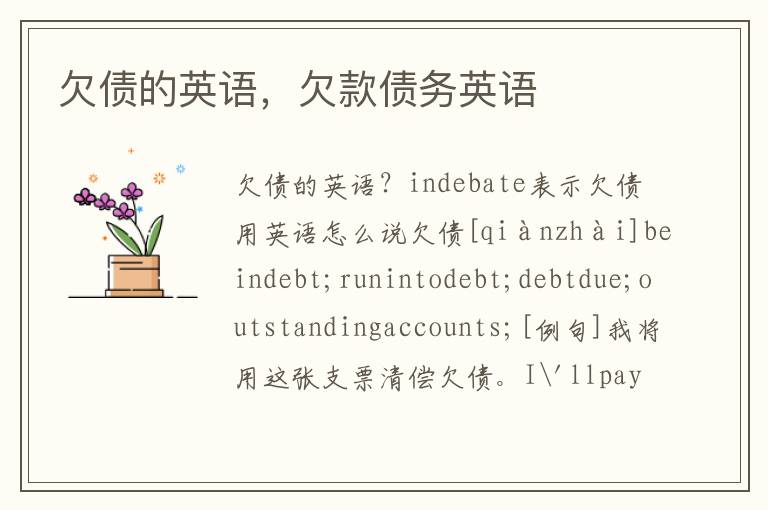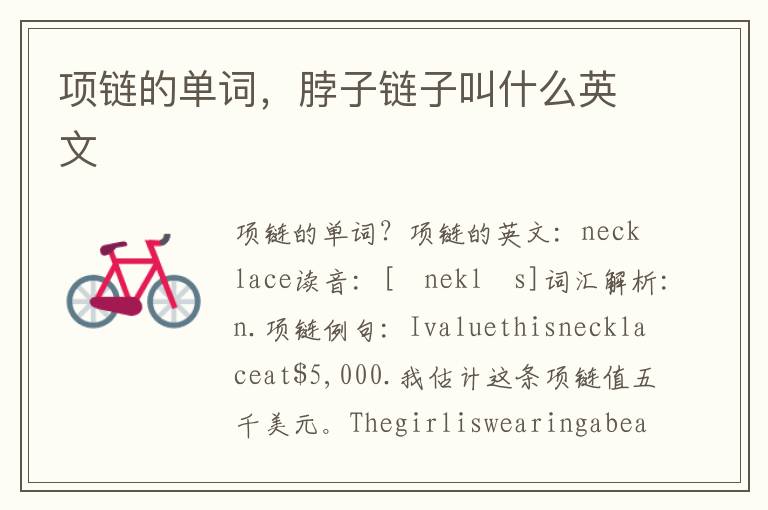【简介】感谢网友“雕龙文库”参与投稿,这里小编给大家分享一些[db:SEO标题],方便大家学习。
Regulators sued a New Jersey consultant who was a prominent 'gatekeeper' for Chinese companies in the U.S., alleging that he defrauded investors, manipulated trading and improperly sold securities in connection with some of the 20-plus Chinese firms he helped gain access to U.S. markets.
美国监管机构起诉新泽西一名为中概股充当“看门人的咨询师,指控他欺诈投资者、操纵交易和非法出售证券。上述指控与20多家在他帮助下在美上市的中国公司有关。
Huakang 'David' Zhou and his firm, Warner Technology & Investment Corp., 'sought to take advantage of our financial markets by propping up some Chinese issuers with the sole purpose of enriching themselves at the expense of U.S. investors,' said Andrew M. Calamari, director of the Securities and Exchange Commission's New York regional office, in a statement. The SEC filed suit against Mr. Zhou and Warner Technology on Tuesday in federal court in Manhattan.
美国证券交易委员会(Securities and Exchange Commission,简称:SEC)纽约地区办公室主任卡莱马里(Andrew M. Calamari)在一份声明中说:周华康和他旗下的华纳国际投资集团(Warner Technology & Investment Corp.)企图利用我们的金融市场来支持一些中国公司在美上市,他们唯一的目的是通过牺牲美国投资者来换取自己的利益。SEC周二向曼哈顿的一家联邦法院起诉了周华康和华纳国际投资集团。
The SEC alleges Mr. Zhou stole $271,500 in proceeds from one company's capital raising in order to pay the mortgage on a New York condominium where his son lived; orchestrated a scheme to help a Chinese real estate company artificially meet the requirements to list on a U.S. exchange; and sold millions of dollars in unregistered securities to dozens of Chinese-American investors.
SEC指控说,周华康为了支付他儿子在纽约居住过的一套公寓的抵押贷款,从一家公司募集的资本中窃取了271,500美元;人为地使一家中国房地产公司符合了在一家美国交易所上市的要求;还向数十位华裔美籍投资者出售了数百万美元的非注册证券。
Mr. Zhou and his attorney couldn't be reached for comment Tuesday.
记者周二无法联系到周华康和他的律师置评。
The SEC's case against Mr. Zhou reflects its focus on the 'gatekeepers'─such as consultants, financiers and auditors─who helped give Chinese companies access to U.S. markets. The Wall Street Journal spotlighted Mr. Zhou last week in a story about the SEC's scrutiny of gatekeepers as part of its probe of accounting questions at Chinese companies.
SEC起诉周华康的案子凸显出“看门人已经成为SEC打击的目标。所谓“看门人是指那些帮助中国企业获得登陆美国资本市场机会的咨询师、金融家和审计人员。《华尔街日报》上周的一篇报道着重提到过周华康,报道谈论了为调查中国公司的会计问题,SEC对“看门人展开调查。
More than 100 U.S.-traded Chinese companies have come under fire from regulators, auditors and short-sellers over accounting and disclosure questions in the past two years. The SEC has filed lawsuits against some of the companies and people associated with them.
过去两年,超过100家在美上市的中国公司受到了美国监管机构、审计机构和卖空者的攻击,这些公司被指在会计或信息披露方面存在问题。SEC已经对一些公司和与这些公司有关的个人提起诉讼。
Many of the companies gained access to U.S. markets through 'reverse mergers' in which closely held Chinese companies merged with publicly traded U.S. companies. That enabled the Chinese companies to get public listings while avoiding the level of regulatory scrutiny they'd get with traditional initial public offerings.
许多公司通过“反向合并获得了在美国上市的机会。“反向合并即私人持股的公司与公开上市的美国公司进行合并。这种方法能够让中国公司达到公开上市的目的,同时避免了传统IPO过程中监管机构的严格审查。
Regulators sued a New Jersey consultant who was a prominent 'gatekeeper' for Chinese companies in the U.S., alleging that he defrauded investors, manipulated trading and improperly sold securities in connection with some of the 20-plus Chinese firms he helped gain access to U.S. markets.
美国监管机构起诉新泽西一名为中概股充当“看门人的咨询师,指控他欺诈投资者、操纵交易和非法出售证券。上述指控与20多家在他帮助下在美上市的中国公司有关。
Huakang 'David' Zhou and his firm, Warner Technology & Investment Corp., 'sought to take advantage of our financial markets by propping up some Chinese issuers with the sole purpose of enriching themselves at the expense of U.S. investors,' said Andrew M. Calamari, director of the Securities and Exchange Commission's New York regional office, in a statement. The SEC filed suit against Mr. Zhou and Warner Technology on Tuesday in federal court in Manhattan.
美国证券交易委员会(Securities and Exchange Commission,简称:SEC)纽约地区办公室主任卡莱马里(Andrew M. Calamari)在一份声明中说:周华康和他旗下的华纳国际投资集团(Warner Technology & Investment Corp.)企图利用我们的金融市场来支持一些中国公司在美上市,他们唯一的目的是通过牺牲美国投资者来换取自己的利益。SEC周二向曼哈顿的一家联邦法院起诉了周华康和华纳国际投资集团。
The SEC alleges Mr. Zhou stole $271,500 in proceeds from one company's capital raising in order to pay the mortgage on a New York condominium where his son lived; orchestrated a scheme to help a Chinese real estate company artificially meet the requirements to list on a U.S. exchange; and sold millions of dollars in unregistered securities to dozens of Chinese-American investors.
SEC指控说,周华康为了支付他儿子在纽约居住过的一套公寓的抵押贷款,从一家公司募集的资本中窃取了271,500美元;人为地使一家中国房地产公司符合了在一家美国交易所上市的要求;还向数十位华裔美籍投资者出售了数百万美元的非注册证券。
Mr. Zhou and his attorney couldn't be reached for comment Tuesday.
记者周二无法联系到周华康和他的律师置评。
The SEC's case against Mr. Zhou reflects its focus on the 'gatekeepers'─such as consultants, financiers and auditors─who helped give Chinese companies access to U.S. markets. The Wall Street Journal spotlighted Mr. Zhou last week in a story about the SEC's scrutiny of gatekeepers as part of its probe of accounting questions at Chinese companies.
SEC起诉周华康的案子凸显出“看门人已经成为SEC打击的目标。所谓“看门人是指那些帮助中国企业获得登陆美国资本市场机会的咨询师、金融家和审计人员。《华尔街日报》上周的一篇报道着重提到过周华康,报道谈论了为调查中国公司的会计问题,SEC对“看门人展开调查。
More than 100 U.S.-traded Chinese companies have come under fire from regulators, auditors and short-sellers over accounting and disclosure questions in the past two years. The SEC has filed lawsuits against some of the companies and people associated with them.
过去两年,超过100家在美上市的中国公司受到了美国监管机构、审计机构和卖空者的攻击,这些公司被指在会计或信息披露方面存在问题。SEC已经对一些公司和与这些公司有关的个人提起诉讼。
Many of the companies gained access to U.S. markets through 'reverse mergers' in which closely held Chinese companies merged with publicly traded U.S. companies. That enabled the Chinese companies to get public listings while avoiding the level of regulatory scrutiny they'd get with traditional initial public offerings.
许多公司通过“反向合并获得了在美国上市的机会。“反向合并即私人持股的公司与公开上市的美国公司进行合并。这种方法能够让中国公司达到公开上市的目的,同时避免了传统IPO过程中监管机构的严格审查。












